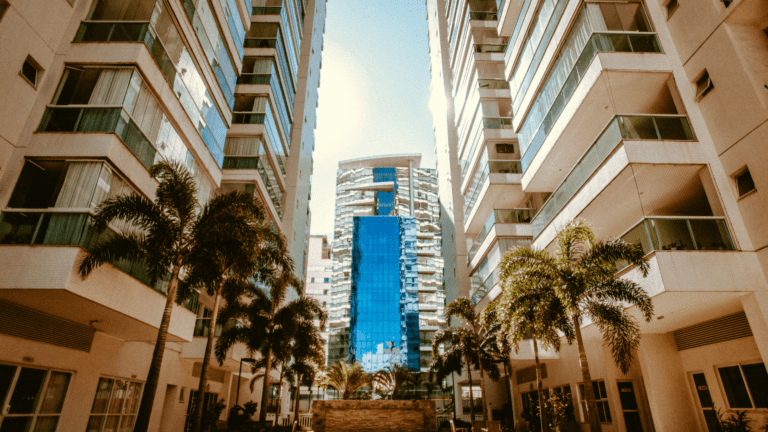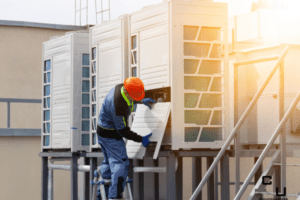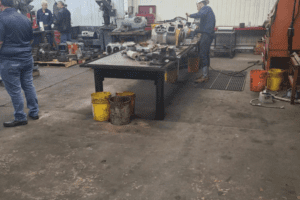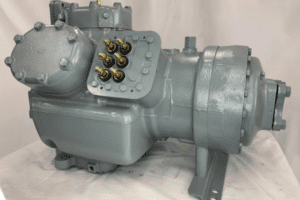A condominium complex should offer an experience a cut above even the best of apartment buildings.
After all, homeowners in a condo trade some control over their property for what Homeowners Associations have to offer. And while that works out to quite a bargain, it doesn’t take much to get on residents’ bad sides.
Even if you do most of your building system maintenance through a third-party provider, there are some areas you should always pay special attention to. Sustaining performance from your HVAC is one of the top goals.
There are three crucial ways your HVAC contributes to total well-being in your complex:
1. Temperature Control
A few days of HVAC shutdown in the dead of winter or high heat of summer may well be enough for your whole complex’s reputation to evaporate. Residents expect responsive controls that give them the temperature they want within minutes. That may be the single biggest factor for ensuring comfort.
2. Indoor Air Quality
Research shows that indoor air can be much more polluted than outdoor air. The risk is especially high for any older buildings with narrow ductwork. Over time, poor air quality can lead to a higher incidence of respiratory health complaints. Serious, untreated cases could eventually lead to the infamous Sick Building Syndrome.
3. Energy Usage
Aside from the lights, your HVAC is likely the biggest consumer of energy on your property. Energy usage can spike for a number of reasons, including problems with the building’s envelope and much more. In the majority of cases, though, a thorough inspection of the HVAC will turn up opportunities to save more money.
Whether your building is brand new or has an established reputation, your HVAC is always part of how it will be perceived: From that first blast of cool, conditioned air as customers step into the leasing office to the day they settle into their favorite chair after a long day’s work and turn on the heat.
To keep it all working as expected for years to come, choose a Carrier 06N compressor.
Carrier Is the Trusted Name in Compressors for Condominiums
HOAs are attentive to budget concerns, always seeking to combine quality and cost-effectiveness.
The Carrier 06N compressor gives them both.
Carrier has established a unique reputation for excellence in cooling systems. As a matter of fact, the first modern air conditioning was invented by none other than Willis Carrier. That 1902 innovation is one of the most important in modern history, especially for those living in the south and southwest.
There are many other American and international firms in the cooling space today. However, Carrier has had more time to innovate and iterate than any competitor. Its dedication to excellence is especially noticeable in its compressors. While there are several key components in a cooling system, the compressor is critical.
Not only does the compressor draw the most energy of any part of the system, but it also performs the most vital mechanical work. If other elements of the system are damaged, the compressor works harder to compensate. But when the compressor itself is down, your HVAC comes to a complete stop.
And pretty soon, you have some frustrated tenants on your hands!
The Carrier 06N Series Compressor Is the Model of Choice for Homeowners Associations
The Carrier 06N series features modern screw compressors to meet your cooling needs.
Carrier 06N compressor models come in a variety of sizes and horsepower ranges, giving you the ability to set up your system exactly how you want it. You and your residents will benefit from the combination of power within a compact footprint so you can optimize your use of space.
Carrier 06N compressors are easy to install, work with, and maintain. With Carrier’s wide network and its proven dedication to quality, you’ll never have trouble finding the parts you need. Plus, your cooling system is compatible with next-generation technology like the smart thermostat and building management systems.
Choosing a remanufactured commercial compressor brings the value of your Carrier 06N to the next level.
With a remanufactured commercial compressor, you benefit from an intensive engineering process designed to deliver quality comparable to an all-new compressor at a fraction of the price. The unit is fully disassembled, cleaned, and outfitted with new parts according to a detailed inspection.
Homeowners’ Associations love the Carrier 06N for its reliability and versatility – and they love remanufactured commercial compressors for the savings and ease of acquisition. You can have your unit weeks sooner than you would with an OEM wholesaler. Many HOAs even keep extra compressors on standby.
The Carrier 06N compressor will help you maintain your HOA’s sterling reputation at a price point you can justify. For HOAs from coast to coast, it stands out as one of the best compressor units on the market today.












